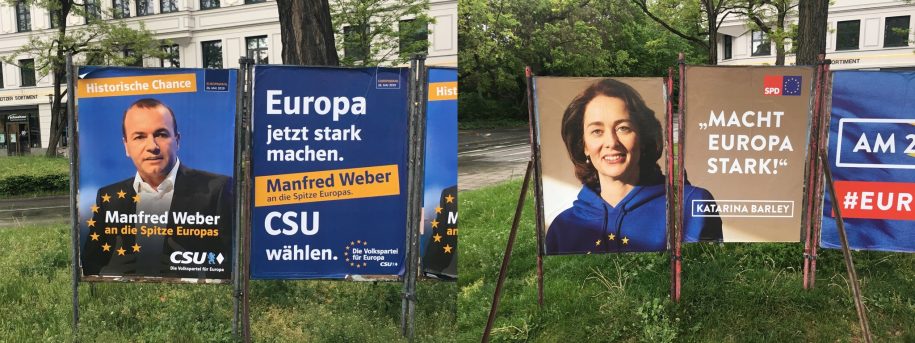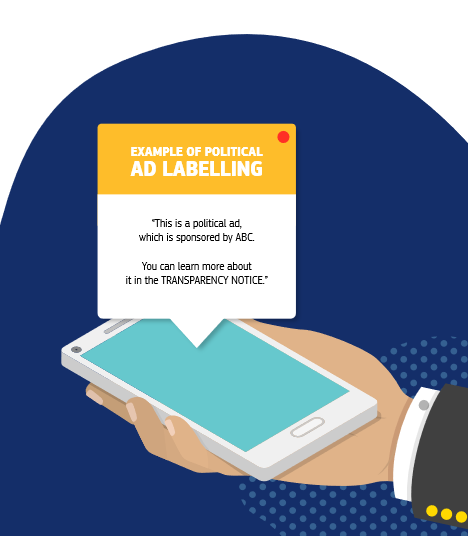Proposal, if passed, would oblige all political advertisements in the EU to enclose a transparency notice with vital information regarding origin, audience, and costs involved.

On 25 November, the European Commission introduced a legislative package containing several proposals for laws aimed at strengthening democracy and the integrity of electoral processes in the EU. The laws cover political advertising, electoral rights, and party funding.
Transparent political advertising
One of the legislative proposals in the package relates to measures to enhance the transparency of political advertisement in the EU. These measures are a response to growing concerns about the influence of political ads around elections of which the origin cannot easily be discerned. According to an opinion sample by the EU’s Eurobarometer of March 2021, almost 40 per cent of respondents had encountered communications of which they were unable to establish whether it was a political ad or not. Moreover, over the past decade, new data mining technologies have made it possible for political operators to address increasingly specific audiences with targeted messages. In the past, concerns have been expressed in member states about the content of political advertising assuming an increasingly polarising tone as they lose their ‘public’ character, being visible only to small target audiences for limited amounts of time.
The draft law foresees in a transparency obligation for political advertising along three dimensions:
1. Contextualising information. To audiences viewing the advertisement, it must be made clear that they are looking at a political ad, and who sponsored it.
2. A transparency notice. Additionally, a transparency notice is to contain further information concerning the ad’s originator, length of circulation, the origin of the ad’s financial sources, and the election/referendum to which the ad is linked.
3. Additional information in case of targeted advertising. Methods used to direct the advertisement to specific target groups will be only permitted if a number of transparency conditions are met. These are that individuals need to provide their consent to be addressed based on personal characteristics derived from their data, and that the advertiser provides information about how the target group is constituted (parameters and size of group), the duration of the targeted ad campaign, the sources from which the personal data was derived, and proactive communication about individual’s exercise of data protection rights.

The foreseen measures will have a particularly broad scope of application. First, the regulation explicitly intends to strengthen legal protection by going beyond the limited application to television and printed-press advertisement that some national laws currently cover. Moreover, the definition of a political advertisement is formulated widely as
…ads by, for or on behalf of a political actor as well as so called issue-based ads which are liable to influence the outcome of an election or referendum, a legislative or regulatory process or voting behaviour.
Under the proposal, member states will be tasked with handing out effective, proportionate, and properly deterrent fines in cases of transgression of the transparency obligations, while national data protection officers will be made responsible for overseeing compliance with use of personal data in this field, underpinned by sanctioning powers in accordance with the EU’s GDPR.
Political advertising as common market problem
The draft law takes articles 114 TFEU, juncto 16 TFEU, as its legal bases. Article 114 is the ‘catch-all’ legal base for the purpose of approximation of national laws to facilitate the EU’s internal market, while article 16 TFEU covers the competence to regulate protection of personal data. With this choice, the Commission places the legislative proposal squarely in the sphere of common market regulation. This appears to be a necessary move, since the intention of the law is to regulate political advertising first and foremost at the national level, rather than exclusively in relation to European elections. The competence to organise national elections and referenda remains at the national level. However, by addressing their market aspects, the Commission exercises the European competence dimension of these processes.
Given their recent resistance to the EU’s exercise of powers in areas close to classic national state powers, the proposal is likely to be protested by some sovereigntist member governments, beginning with Poland and Hungary. At the same time, it is also in relation to observed political deck-stacking practices in those member states that the Commission introduced the current proposal. Hungary’s last parliamentary election, for example, was characterised as “free but not fair” by the international OSCE organisation, while last year’s presidential elections in Poland were marked by legal uncertainty and a pervasive public media bias, again in the OSCE’s words. Upon the introduction of the legislative proposal, responsible commissioner Vera Jourová stated:
Elections must not be a competition of opaque and non-transparent methods. People must know why they are seeing an ad, who paid for it, how much, what micro-targeting criteria were used. New technologies should be tools for emancipation, not for manipulation. This ambitious proposal will bring unprecedented level of transparency to political campaigning and limit the opaque targeting techniques.
Nevertheless, a legitimate concern related to the proposal appears the question to which extent political advertising markets are marked by a cross-border character. In many cases, political advertisements are likely to be created by, paid for, in support of, and targeting individuals of the same nationality, through news outlets owned by fellow nationals, within the boundaries of a single member state, in which case the common market dimension remains merely hypothetical. That said, the potential of a cross-border dimension clearly cannot be excluded, with ad sponsors, (partial) media owners, and even in some cases, target audiences often not originating from the member state in question. This applies a fortiori where social media platforms, which are mostly registered abroad, are involved as the actors selling and competing for advertising space.
Transparency reform amidst worries about democratic backsliding
The proposal for political advertising regulation goes accompanied by further draft laws governing (the transparency of) European political party financing, regulation of electoral lists in municipal elections, amid long-announced efforts by the Von der Leyen Commission to reinvigorate democratic processes in the EU and its member states. More recently, commissioners Jourová and Breton also announced a package of proposals aimed at strengthening and anchoring the role of European media as harbingers of democratic processes.
The efforts come amid growing concerns about the rolling back of rights and institutions of pluralistic democracy and open public debate in Poland and Hungary, in a dynamic that can increasingly be characterised as a hostile standoff. In this conflict, concerns over electoral processes, media freedom, and judicial independence all interact. In a speech at the European News Media Forum yesterday, Jourová quoted Hungary journalist Veronika Munk, warning: “‘history can go backwards – even in the EU’. I want to change […] the course of history. I want to say we will go forward.” In remarks to the Polish press, she added: “I am frustrated by what is happening with the rule of law in Poland. […] [Justice minister] Zbigniew Ziobro speaks as a representative of a country that is no longer in the EU.”


